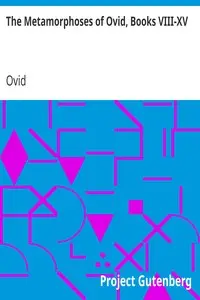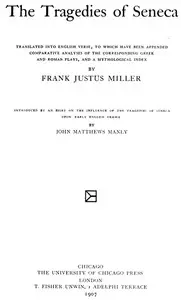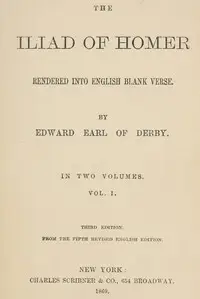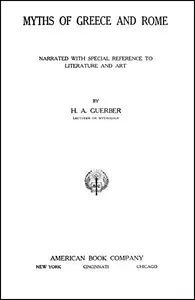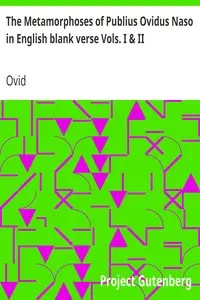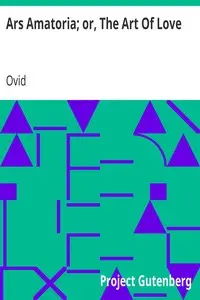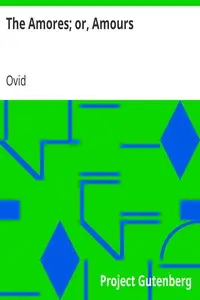"The Metamorphoses of Ovid, Books I-VII" by Ovid is an ancient poem that gathers together stories from Greek and Roman myths to consider change and connections between gods and people. It starts with the world's creation, where a god brings order out of chaos, crafting the elements and then human beings. It shows how things got worse over time, from a perfect Golden Age to a harsh Iron Age, as people stopped acting right. When giants try to take over, the gods flood the world as punishment, but two people survive. These survivors are told, "Throw stones," which then magically turn into people, in order to show how life can start over even after terrible disasters.
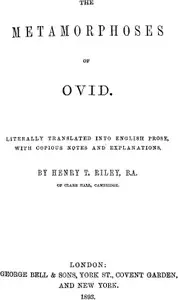
The Metamorphoses of Ovid, Books I-VII
By Ovid
Witness the world's birth, humanity's rise and fall, and the transformative power of divine intervention in this epic saga of myths and legends.
Summary
About the AuthorPublius Ovidius Naso, known in English as Ovid, was a Roman poet who lived during the reign of Augustus. He was a younger contemporary of Virgil and Horace, with whom he is often ranked as one of the three canonical poets of Latin literature. The Imperial scholar Quintilian considered him the last of the Latin love elegists. Although Ovid enjoyed enormous popularity during his lifetime, the emperor Augustus exiled him to Tomis, the capital of the newly-organised province of Moesia, on the Black Sea, where he remained for the last nine or ten years of his life. Ovid himself attributed his banishment to a "poem and a mistake", but his reluctance to disclose specifics has resulted in much speculation among scholars.
Publius Ovidius Naso, known in English as Ovid, was a Roman poet who lived during the reign of Augustus. He was a younger contemporary of Virgil and Horace, with whom he is often ranked as one of the three canonical poets of Latin literature. The Imperial scholar Quintilian considered him the last of the Latin love elegists. Although Ovid enjoyed enormous popularity during his lifetime, the emperor Augustus exiled him to Tomis, the capital of the newly-organised province of Moesia, on the Black Sea, where he remained for the last nine or ten years of his life. Ovid himself attributed his banishment to a "poem and a mistake", but his reluctance to disclose specifics has resulted in much speculation among scholars.

